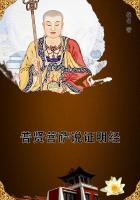Nothing can present a more legitimate field of inquiry.A great despotism implies an abundant population,and therefore certain physical conditions,geographical and climatic --as the existence of a whale implies an open sea and plenty of food.The problem,then,is how do the conditions lead to the observed phenomenon?How do the physical conditions lead to the formation of these early civilisations?Here Buckle makes a remarkable assumption.He finds a solution in the teaching of the economists.An increase of population means a lowering of wages;or,as he puts it,the question of wages is,'in the long run,'a question of population.(24)Now,in cold countries more food is required,and the food is harder to procure than in the hot.(25)Hence population will increase faster in hot countries,and wages will in them tend to be low.The case of Ireland confirms or extends the theory.There,cheap food does what general fertility does in India.The potato,more than the 'scandalous misgovernment,'is the most active cause of Irish poverty.Cheap food,then,means low wages.The result,startling for an enthusiastic free-trader,suggests a confusion.An increase of population on a given area may lower wages;but it does not follow that a larger population must be worse off when the area is more productive.He ought to show that the Indian population must be in greater excess;he has only shown that it may be positively greater.There is no proof that it will increase at all when the 'checks'are once operative,or increase in a greater ratio to its support.What is the real relation of cause and effect?Did Irishmen become poor because they had cheap food,or take to cheap food because they were poor?The food enabled them,no doubt,to support a larger number of poor,and in a more precarious position.When the potato failed they could not substitute wheat.That is enough to confute the hasty assumption that cheap food is a panacea for poverty,but does not prove that plenty necessarily causes poverty.There is another step to be taken.Ricardo now supplements Malthus.He had shown that the whole wealth of a country must be divided into wages,rent,profit,and interest,while interest is proportional to profit.
Now,in India,interest and rent have been enormously high;therefore wages are low and profits high.(26)A high rate of interest,however,may show that capital is scarce and payment precarious.The moneylender may extort high interest from the peasant,and yet the aggregate of profits may be small,and the whole country miserably poor.Ricardo's doctrine assumes that the wages of the labourer are advanced by the capitalist.It does not apply to a population of village communities,where the differentiation of classes has not yet taken place.(27)Buckle,however,does not trouble himself with such difficulties.The great empires are supposed to have arisen from the growth of a rich class,whose wealth has enabled them to gain political power.No doubt the despots had great wealth in poor countries;but it does not appear that they owed it to the development of a great class of rich capitalists,or even that such a class existed.The objection to Buckle's method is apparent.In the first place,it takes for granted the existence of a complex industrial organisation as an antecedent to the growth of the despotism.The system under which the capitalist,the labourer,and the landowner share profits,wages,and rent,the whole machinery of exchange and competition,is postulated as though it represented a necessary state,even in the early stages of civilisation.That was a natural application of the necessary assumption of the orthodox political economy.It professed to deduce its conclusions from the laws of human nature common to all men in all ages.They were therefore as valid in the earliest as in the latest time,and explain the causes as well as the consequences of social development;and hence it follows that the 'mental laws'can be excluded.Since the organism is constant,all differences are due to differences of environment,or,in Buckle's language,to the 'physical laws.''In India,'he says,'slavery,abject slavery,was the natural state of the great body of the people;it was the state to which they were doomed by physical laws utterly impossible to resist.'(28)In Europe,as he elsewhere puts it,(29)man is stronger than nature;out of Europe nature is stronger than man.Man is in one case the slave,and in the other the master of the physical forces.That is to say,that in the earlier stages we may argue directly from the 'environment'to the 'organism.'The hopeless slavery to which so many millions have been doomed is a direct and inevitable result of the 'physical laws,'that is,of the climate,soil,and food.
We are therefore dispensed from any inquiry into the character of the organism itself and the 'mental'laws implied in its constitution;or we take for granted that the laws which regulate the more developed organism are absolute and permanent,and may therefore explain the earliest stages of growth.(30)Thus the inquiry into the nature of the social organisation,into the primitive institutions out of which the empires have grown,is virtually set aside.Because the 'mental laws'work so uniformly they may be neglected.We are left with the bare result that great empires have grown up under appropriate physical conditions,and they are all lumped together as 'despotisms.'















